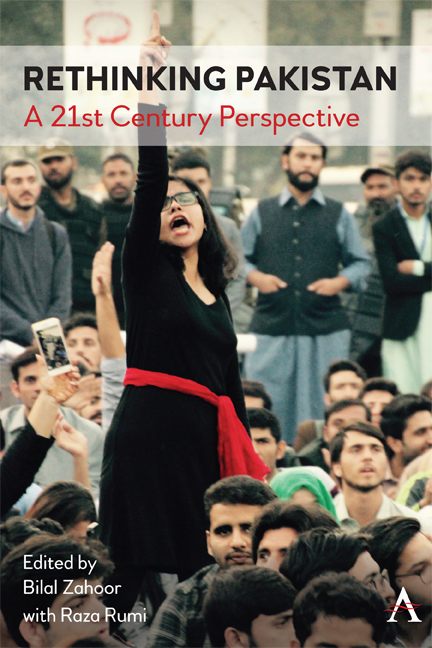Book contents
- Frontmatter
- Dedicated
- Contents
- Acknowledgements
- Introduction
- Part I Identity, Religion and Radicalisation
- Part II Development, Reform and Governance
- Part III Rights, Repression and Resistance
- Part IV Sex, Gender and Emancipation
- Part V Conflict, Diplomacy and Foreign Policy
- Contributors
- Bibliography
- Index
Chapter 6 - Curriculum and the Constitution
Published online by Cambridge University Press: 20 January 2022
- Frontmatter
- Dedicated
- Contents
- Acknowledgements
- Introduction
- Part I Identity, Religion and Radicalisation
- Part II Development, Reform and Governance
- Part III Rights, Repression and Resistance
- Part IV Sex, Gender and Emancipation
- Part V Conflict, Diplomacy and Foreign Policy
- Contributors
- Bibliography
- Index
Summary
Politics of the Curriculum
Pakistan is a culturally, ethnically, religiously and economically diverse country with a multiplicity of languages and a rich variety of local traditions, folklore, food, dresses, dance and musical forms. It is always difficult, in such plural societies, to make decisions about what to teach the future generations from a complex variety of intellectual and cultural knowledge. Every curriculum entails choices; those delivering the educational service, be they state, private or social institutions, have to decide which contents, from a vast universe of available knowledge, should be included and which ones excluded. Such choices are invariably political in that they depend on the ideological leaning of the institution imparting the knowledge.
Curriculum is not, and can never be, neutral or impartial, because every choice entails the absence of what is excluded. Curriculum choices thus become a question of the relative power of groups in any society. With each group (religious, ethnic, sectarian or nationalist) vying for the inclusion of what it regards as the truth, the curriculum becomes a highly contested site, steeped in social conflict. Those with greater social, economic and political capital in the state may manage to get their form of “truth” included, while those with lesser clout in society may not succeed in the inclusion of their alternative, but equally valid, version.
The curriculum is reflective of the distribution of power in society which, in turn, is indicative of the societal distribution of resources. Those who decide what is to be taught, what is to be excluded and how it is to be transmitted and evaluated wield the ultimate ideological power in society. However, the curriculum remains forever a contested site as competing groups continue to vie for inclusion, especially in highly differentiated, layered and hierarchical societies. British educational sociologist Basil Bernstein puts it succinctly:
How a society selects, classifies, distributes transmits and evaluates the educational knowledge it considers to be public, reflects both the distribution of power and the principles of social control.
Every social group in society – religious, linguistic, ethnic, sectarian, economic or gender-based – seeks to include its own preferred form of knowledge in the curriculum for its future group members.
- Type
- Chapter
- Information
- Rethinking PakistanA 21st Century Perspective, pp. 67 - 72Publisher: Anthem PressPrint publication year: 2020



